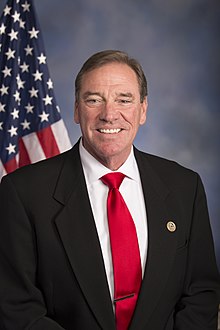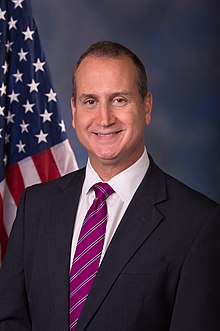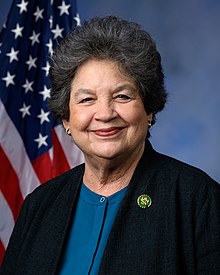 Randy Fine is a Republican member of the U.S. House of Representatives, representing Florida’s 6th Congressional District. He assumed office following a special election victory on April 1, 2025, and officially took his seat on April 2, 2025. Fine previously served nearly nine years in the Florida Legislature, including terms in the Florida House of Representatives and State Senate. His approach in office has been characterized by a combative, outspoken political style.
Randy Fine is a Republican member of the U.S. House of Representatives, representing Florida’s 6th Congressional District. He assumed office following a special election victory on April 1, 2025, and officially took his seat on April 2, 2025. Fine previously served nearly nine years in the Florida Legislature, including terms in the Florida House of Representatives and State Senate. His approach in office has been characterized by a combative, outspoken political style.
Policy Effectiveness and Legislative Record
Since joining Congress, Fine has sponsored multiple bills in the 119th Congress. Notable among them are the Correct the Count Act (H.R. 4884), the ROAD Act (H.R. 4846), the Path to Florida Springs National Park Act (H.R. 4656), the United States–Israel PTSD Collaborative Research Act (H.R. 4655), and the SUE Act (H.R. 4561); all have been introduced and referred to committees as of mid-2025. None had passed beyond introductory or committee stages at that time.
During his Florida legislative tenure, Fine was known for championing socially conservative measures—such as restrictions on classroom discussions of gender and sexuality, often associated with the “Don’t Say Gay” initiative—and spearheaded legislation targeting special tax districts, including efforts against Disney’s special district. He also promoted parental involvement in education and immigration-related policy reforms.
Key Votes and Voting Record
As of this writing, detailed congressional voting records—including attendance or alignment metrics—are limited given his recent entry to the U.S. House. In the Florida Legislature, Fine frequently aligned with the Republican majority but also occasionally opposed figures like Governor Ron DeSantis following political disagreements. Specific roll-call vote percentages or attendance rates are not yet publicly available.
Ethics and Controversies
In April 2023, the Florida Commission on Ethics found probable cause that Fine abused his office—allegedly by threatening to withhold state funding for Special Olympics and municipal services over personal disputes—and referred the matter to the Division of Administrative Hearings for a formal hearing. Fine disputed the findings, labeling the commission a “kangaroo court” and delaying proceedings.
On the campaign trail and in media reports, he has drawn criticism for confrontational behavior: a judge held him in contempt of court after disruptive conduct during a virtual hearing and ordered him to undergo anger management training. In Congress, his remarks during hearings—such as dismissing a pro-Palestinian activist with derogatory language—have added to his controversial profile.
Constituent Service and Public Engagement
There is limited public data specifically on Fine’s constituent service metrics, such as town hall frequency or casework responsiveness. His aggressive public persona, however, has drawn both praise from supporters—who describe him as effective at advancing legislation—and criticism from opponents who view his style as divisive. While campaign finance reports indicate he raised approximately $2.98 million from November 2024 to June 2025, with about $380,000 cash on hand—reflecting significant fundraising activity—these figures do not directly reflect constituent services.
Bipartisanship and Collaboration
Fine’s record reflects limited evidence of bipartisan initiative. His legislative focus and rhetorical style suggest a strong alignment with conservative Republican priorities. Reports characterize him as combative and willing to confront both opposition parties and fellow Republicans—including his estranged relationship with Ron DeSantis. No clear instances of cross-party coalition-building have been documented as of mid-2025.
Recent Focus and Public Stances
Upon entering Congress, Fine introduced a series of bills spanning a range of policy areas—from government oversight (Correct the Count Act), to natural resources (Florida Springs park), to veterans’ mental health (U.S.–Israel PTSD research).
He consistently frames his public messaging in combative, pro-Israel and socially conservative terms. During his congressional campaign and in subsequent coverage, he embraced the nickname “Hebrew Hammer,” characterized himself as a “conservative firebrand,” and defended his aggressive approach as effective policy-making. He has openly criticized Governor DeSantis’s record on antisemitism and distanced himself politically from the governor.
Conclusion
Rep. Randy Fine’s time in federal office is still nascent, and his performance is best understood in light of his reputation from nearly a decade in the Florida Legislature. His record is marked by aggressive advocacy of conservative policy, high-profile controversies, and confrontational political posture. While respected by supporters for his persistence and legislative drive, his approach has also alienated colleagues, contributed to intra-party conflict, and shaped a polarizing public image. His effectiveness in advancing legislation at the national level remains to be seen as his committee work and bill progression develop over the coming term.











You already said the stupidest things that we will never let you forget. Wake up and fight for Americans!